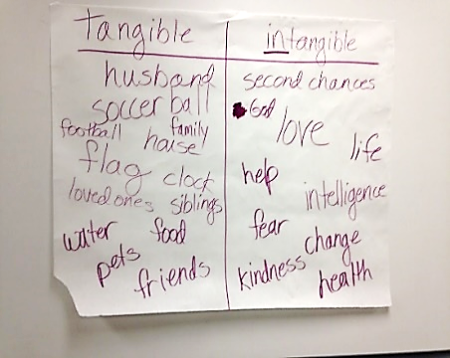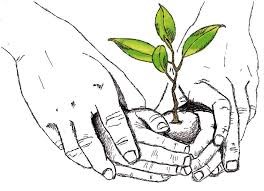The problem, you see, is that we have been doing what we do for so long, it needs no explanation. Or, at least, this is how it appears for most of us. Mercy has been working with the marginalised, with people who struggle with the everyday, with those who do not ask and rarely get, for too many years now to stop and consider why we work the way we do. To wonder why we are different from organisations such as Concern or Oxfam. And yet, this is, at times, just what is expected of us.
We are, in the circles I frequent, expected to put into words, what is different about the way we interact with communities. We are asked to articulate what is commonly referred to as “the Missionary Approach to Development” or MAD. Since our approach is never about what we do and all about who we are, finding the right words to explain to someone not of the same mindset is, to put it mildly, challenging.

Recently I attended a “learning event” on this very topic. A cross-section of participants from religious congregations and development organisations (Tearfund, Irish Aid, World Mission Ireland……) came together to debate the values to be found in the missionary approach and what we – and them, could learn from each other.
Just shy of ten years of working within and breathing in this particular arena it would be easy to assume that I have heard of or pondered on every mode of expression which captures our way of doing things. It gives me great pleasure to admit that this is not so as undoubted gems emerged from what were lively discussions. So, at the risk of plagiarising but with the intent of sharing my own particular learning, some of the ways in which our approach to ministry was expressed, were :
As missionaries we are…..
….building on a community’s deepest sense of belonging
….developing the aspirations, feelings and desires of others
….helping someone define who I am rather than what I have
….giving someone the freedom to live the life s/he values
Now, if we consider the above as true reflections of the impact of our ministry, how do we express this in terms that the reader of our reports might comprehend ? How do we bring the intangible to life ? For those who have had the opportunity to peruse the Mission & Development 2017 Annual Report you may have noted that I attempt to do just that. If I have succeeded it is surely because the readers themselves embody MAD within their ministry work. They know and can identify with that of which I speak.

The real challenge is when the audience prioritises only tangibles and expects always to see visible signs of our presence on the ground. So when trying to put into words the change we help to bring about, the result of our efforts, we may first of all want to ask ourselves – What is the understanding of the influence of faith in the development arena ? While for us it is obvious and requires no explanation, for those not of the same mind-set, the way we do things – our MAD – might appear misguided, ineffectual or just plain wrong. We tend to be people-centred rather than activity-centred, we work to a different time frame – years and not months and, adding to my own particular challenges, we don’t really like talking about what we do and how much we accomplish. Compare that modus operandi to the one adopted by the majority of development organisations and you may begin to understand why often we seem to speak different languages.

Before however we declare that “never the twain shall meet”, perhaps it is also worth exploring just what we might learn from development organisations. One insight which revealed itself at the above-mentioned learning event was the admission by a development colleague that often her organisation would make their pitch to potential donors by referring to the significant impact of the work of Irish missionaries! (Should I also mention that my suggestion we begin charging them commission on funding received seemed to fall on barren ground…?) So, there is a recognition of the value of our efforts. And yes, MAD might be our own particular way of doing things but surely there is room enough and need a-plenty for both the missionary approach and the non-missionary approach to co-exist, to respond in our different ways to those who don’t even have the words to ask for what is rightfully theirs.
Maria Douglas
Mercy Mission and Development Co-Ordinator


